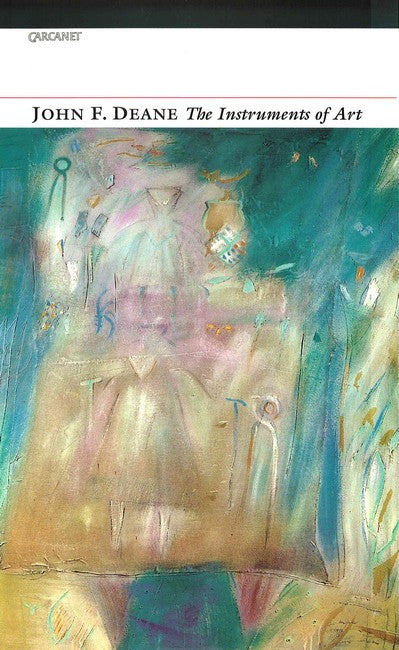John F. Deane was born on Achill Island in 1943. He founded Poetry Ireland - the National Poetry Society - and The Poetry Ireland Review in 1979. He is the author of many collections of poetry and some fiction, including from Carcanet Toccata and Fugue: New and Selected Poems (2000) and Manhandling the Deity (2003, shortlisted for the T.S. Eliot Prize). His poetry has been published in French, Bulgarian, Romanian, Italian and Swedish translation. In 1996 he was elected Secretary-General of the European Academy of Poetry. The recipient of the O'Shaughnessy Award for Irish Poetry in 1998, his poems in Italian, translated by Roberto Cogo, won the 2002 Premio Internazionale di Poesia Citta di Marineo for the best foreign poetry of the year.
Description
Table of Contents I The Instruments of Art Canvas Heirs to a Different Century Late October Evening Riverdown The Gift Rhododendron, Fuchsia, Thorn By the Banks of the Dodder The Visitors The Rowan Tree The Meadows of Asphodel Adagio Molto Three Rivers The Instruments of Art II The Artist III The Old Yellow House House at the Crossroads The Study Carpenter The Monastery Sheltering Places The Mysteries The Ship The Siege The Old Yellow House IV According to John You One for Sorrow Lady The Jacaranda Tree The Divine Office Of Misery: The Other John Suffer the Children Master of the Feast Angelus Drinking the Spring In the Teeth of the Wolf The Gravity of Flesh Lazarus, and the Migration of Storks Carnival of the Animals The Aftertaste of Bitterness Beloved Report from a Far Place The Light of Dawn Prayer V An Exemplary Fiction The Red Gate Mushrooms The Big Men The Mother Husbandry The Poem Spaces of Peace Brothers Age of Foolishness Blessing Patricia's Story Spaces before War The Marriage Settlement On Land and Sea The Dromedary Caravans By the River The Chaplet VI Seasons in Hell Holy Saturday The Artist in his Youth Boot-Prints in Snow Terre Cuite Hero Foxgloves Redemption Daffodils
'When John F. Deane fuses the music of thought and feeling with the music of language itself, there rises in me that internal Yes! That we unconsciously hunger to experience as we approach a poem or any work of art.' Denise Levertov

